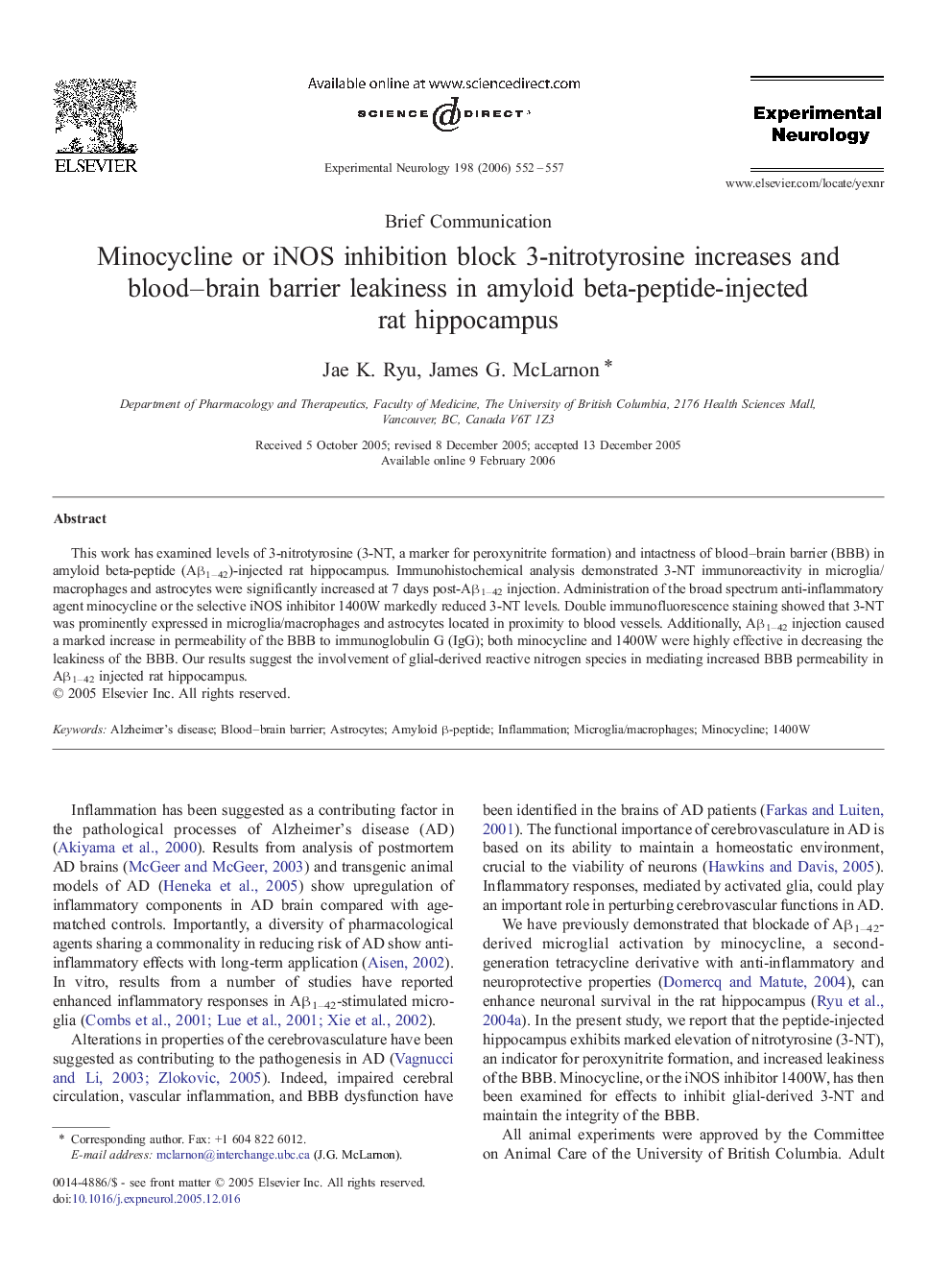| Article ID | Journal | Published Year | Pages | File Type |
|---|---|---|---|---|
| 3057478 | Experimental Neurology | 2006 | 6 Pages |
This work has examined levels of 3-nitrotyrosine (3-NT, a marker for peroxynitrite formation) and intactness of blood–brain barrier (BBB) in amyloid beta-peptide (Aβ1–42)-injected rat hippocampus. Immunohistochemical analysis demonstrated 3-NT immunoreactivity in microglia/macrophages and astrocytes were significantly increased at 7 days post-Aβ1–42 injection. Administration of the broad spectrum anti-inflammatory agent minocycline or the selective iNOS inhibitor 1400W markedly reduced 3-NT levels. Double immunofluorescence staining showed that 3-NT was prominently expressed in microglia/macrophages and astrocytes located in proximity to blood vessels. Additionally, Aβ1–42 injection caused a marked increase in permeability of the BBB to immunoglobulin G (IgG); both minocycline and 1400W were highly effective in decreasing the leakiness of the BBB. Our results suggest the involvement of glial-derived reactive nitrogen species in mediating increased BBB permeability in Aβ1–42 injected rat hippocampus.
